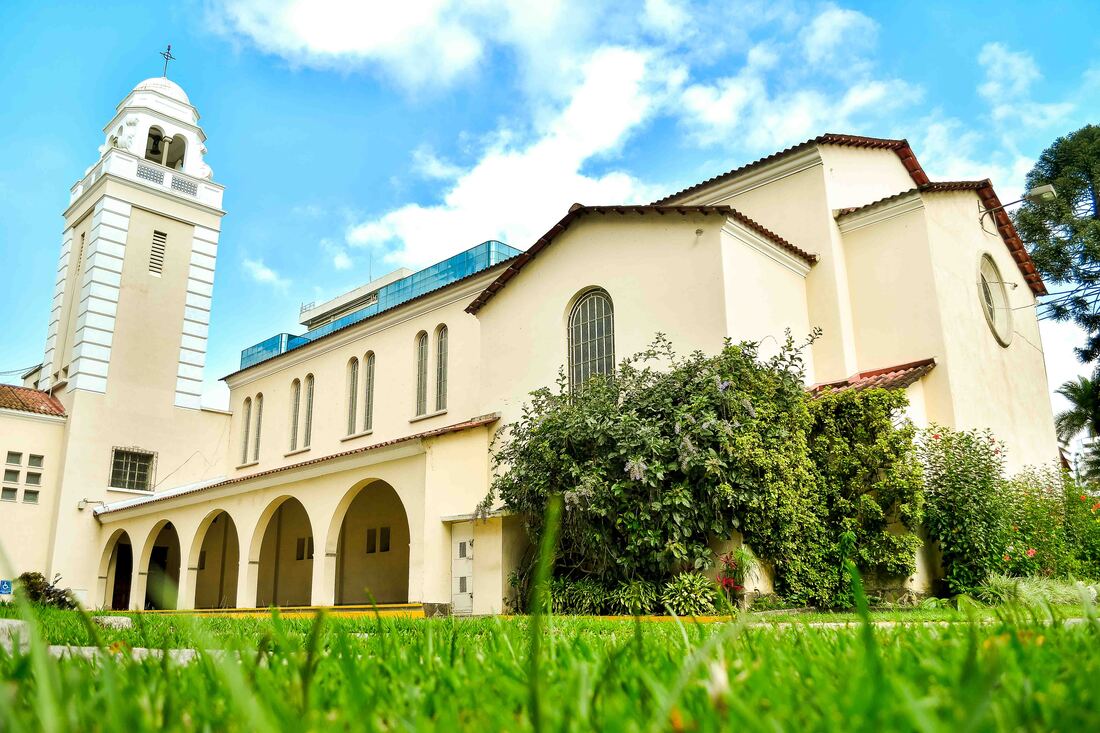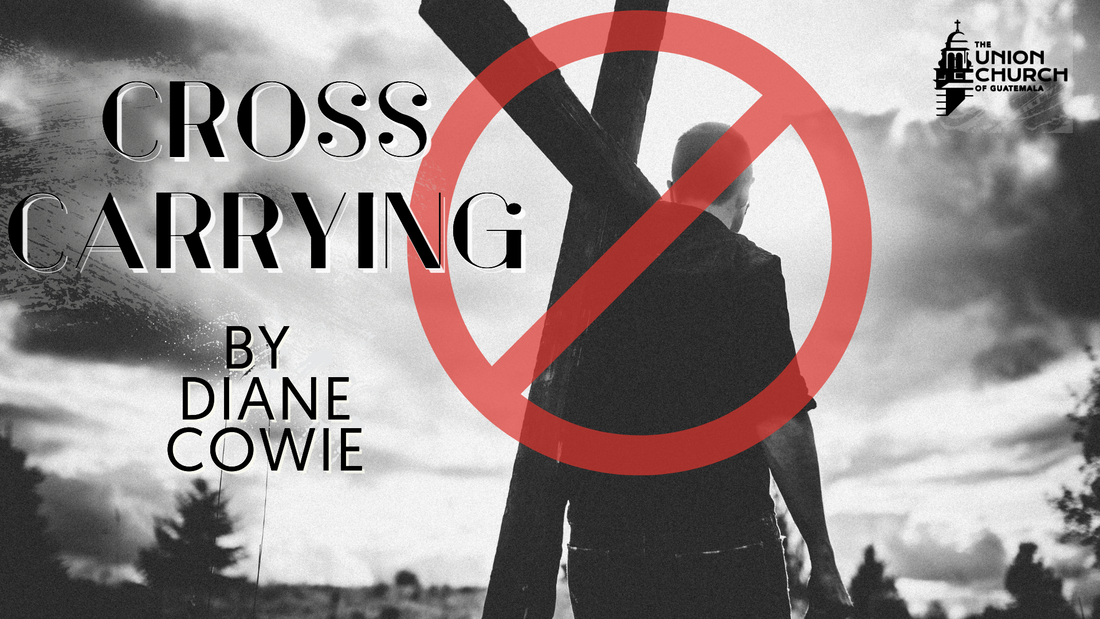|
Then Jesus said to his disciples, "Whoever wants to be my disciple must deny themselves and take up their cross and follow me.” Matt 16:24 (NIV)
“Whoever does not take up their cross and follow me is not worthy of me." Matt 10:38 As Holy Week arrives and crucifixion themes are prevalent, I was thinking about my favorite movie for this time of year, The Robe. Released in 1953, it creates a story of a Roman military leader who witnessed the crucifixion of Jesus and ended up with Christ’s garment, the robe. That event set tribune Marcellus on a course to find out who Jesus really was. He eventually was executed for the pronouncement that Jesus was his King. While The Robe is a complete work of fiction, it has several truths portrayed in it. Unlike many Easter films, it does not focus on the suffering of Jesus on the cross, but rather on what the cost of the cross is to those who follow the Jesus of the cross. Over the years, it has made me think about what Jesus wants from me. Does my encounter with Christ change the way I think and act? What am I willing to give up to follow Jesus? Others may have to ask, like Marcellus, if they can walk away from power and prestige to swear allegiance to Jesus, a politically incorrect leader. One of Jesus’ parables deals with this cost. In Luke 14:28, Jesus uses the analogy of building a tower to tell his disciples that following him requires a deliberate decision. Following Christ will not lead to arriving on the top of the heap, but rather to an upside-down kingdom, one where the last will be first, and the first, last. Success is completely redefined in Christ’s kingdom. Am I willing to live with the consequences of this decision? To one inquirer, Jesus said that foxes have holes, and birds have nests, but the Son of Man has nowhere to lay his head. Jesus was not offering an easier life. What I have to remind myself is that Jesus didn’t lay out a series of dos and don’ts, but He asks for my allegiance to a new way of thinking and acting, and that means I have to leave the world’s standards behind. I can’t walk with one foot in the world and the other in the Kingdom of Heaven. In the closing scene of The Robe, the tribune Marcellus, who has been discounted by the empire as insane, faces the emperor and declares his allegiance to the Jesus he was asked to denounce. The death sentence is pronounced. The emperor now realizes that Marcellus truly believes that he will live in Christ’s kingdom. The ruler reacts like a madman, screeching that Marcellus and his betrothed, while headed to their execution, are really going into another kingdom. It is a dramatic portrayal of the truth I want to keep front and center: I already belong to another kingdom and death does not change that truth. But the daily challenge remains -- to be a faithful cross carrier. Diane Cowie
0 Comments
Times were really tough for businesses in Guatemala in the 1980s due to civil unrest. I interviewed over a hundred owners and top managers for USAID to find out what might be the best way that businesses could be supported to keep the economy going and not lose jobs.
In interview after interview, I asked the managers or owners what the five worst problems were that the companies were facing and how might they best be helped. In every case, those interviewed would recite a list of really grave difficulties and complain about them in great detail. My last interview was an exception. It still sticks out in my mind after so many years. When I asked for the list of problems, the owner responded: “Problems? What problems? I don’t have any problems; what I have are fabulous opportunities. My business is expanding rapidly, and my finances are really solid. I am planning to open a new factory in a couple of months.” Then he continued talking. “Up until the end of last year I had horrendous problems. My sales were going down, my employees were not working, I could not collect my receivables and creditors were knocking at my door. I became increasingly depressed, and my health was going downhill fast. I could barely go to the office. Everyone was becoming demoralized. My business was facing bankruptcy.” “One morning, however, I woke up and said to myself, ‘Joe, you don’t have any problems. The problems are in your head. What you have are wonderful opportunities. Take advantage of them and get rid of those bad thoughts.’ That day my bad fortunes reversed, and things have been going marvelously ever since.” Then he said, “I should mention that at the time this occurred, I had just accepted Jesus Christ as my Lord and Savior.” How easy it is to burden ourselves with our problems and let ourselves get dragged down into total anxiety, depression and ineffectiveness. Our concentration on our concerns is greatly aided and abetted by everything and everyone around us. The news media expounds about problems 24 hours a day because that is what their audience wants to hear about. Politicians expound about problems because that is what gets the votes. Then there are the dangers of Covid 19, lack of security and economic difficulties. Our worries become a destructive, self-fulfilling prophecy. As my interviewee indicated, it doesn’t have to be that way. I have found in my journey with Jesus that God does not take away difficulties, but they are no longer problems; they are challenges. When we are with God, the opportunity for growth and victory is always at the end of the tunnel. When we have faith in Jesus and accept him as our Savior, we will always have the best possible solution in an eternal scope because God loves us and has the power to provide what we need. Do not let depressive thoughts, problems and anxieties burden your mind and destroy your effectiveness and health. Paul said it as well as anyone can. “Finally, brothers and sisters, whatever is true, whatever is noble, whatever is right, whatever is pure, whatever is lovely, whatever is admirable—if anything is excellent or praiseworthy—think about such things.” (Philippians 4:8 NIV) Roger Cowan “Many are the woes of the wicked,
but the LORD’s unfailing love surrounds the man who trusts in him.” Psalm 32:10 Some days (or months, or years), it seems that everything goes wrong. An accident, a grave illness, a financial predicament, a heated disagreement, a deep disappointment -- any or all of these could gang up against you, robbing you of peace, joy and contentment. “Many are the woes of the wicked…” It’s so easy to think like “the wicked,” like people who don’t have Christ in them and who are controlled by their weak, sinful natures. “The mind of the sinful man is death…” (Rom 8:6). His thinking is all negative. For him, when everything goes wrong, there’s no way out. It’s going to turn out bad. The accident ruins things, the financial problems can’t be fixed, the disagreement is unresolvable, and the illness is inevitable and might even lead to death. But wait. That’s not who we are. We are not “the wicked.” We have the Spirit of Christ in us if we belong to Christ (Rom 8:9). That makes us “the righteous.” Difficulties are bound to come, but when they do, his Spirit in us says, “Trust me.” “How?” says our flesh and all of our earthly, logical mind. “There is no good way out of this.” “Oh really?” says the Lord. “Is my arm too short to save you, even from this?” (Num. 11:23, italicized words added.) Don’t you know, “…the LORD’s unfailing love surrounds the man who trusts in him.” So often a tough situation doesn’t seem to have a way of working out well. If we trust in our own human efforts to solve the problem, it very well might not turn out well. But we who have the Spirit of Christ in us live by faith, not by sight. If we can take that leap and throw ourselves onto the Lord and trust him to figure it out and to lead us to his solution, we’ll find out that he’s got it. He’s had it all the time. It may be something we would never have thought of. Remember what he did with the Red Sea. Just at the right moment, he opened the way, a most unexpected event. When the crisis comes, we could feel consumed by our woes if we’re not careful, but God’s word encourages us to remember that we are surrounded by his unfailing love if we trust him. If we can take him at his word, leave the negative-thinking probable scenarios behind like “we will probably drown in this Red Sea or else Pharaoh’s army will probably either slaughter or capture us,” then we make room for God to work. This means that we have to get our minds off of those thoughts, take a kind of blind leap out of doubt and into trust - trust in God’s word - then we can be assured that his unfailing love will be waiting for us, and an answer will come. When the crisis comes, when you’re having a Red Sea moment, opt for trust. We love to see children in church. We clutch our hands to our hearts during their Christmas pageant, laugh at their funny answers during a children’s moment in service, and clap along when they sing on Easter Sunday. However, the Bible shows us how truly important children are in the body of Christ, beyond the sweet songs they sing.
The Bible tells us that God created children perfectly (Psalm 139:13-16) and that they are a reward and source of joy (Psalm 127:3-5). We are not to cause children to stumble in any way (Matthew 18:6-7) nor exasperate or be unreasonable with them (Eph. 6:4). We are obligated to teach them while they also have a role as our teachers (Deut. 6:6-7, 11:18-21), as Jesus called us to humility when He told us to be like children (Matt. 18:3-4; 1 Tim. 4:12). To fully understand how Jesus felt about little ones we can look to Mark 10:13-16. Jesus was in the middle of talking to His disciples and the pharisees about the serious topic of divorce, and was interrupted when people, probably mothers brought their children to Him. Like any good parent they wanted them close to the Messiah. The disciples though were annoyed by them; couldn’t they see they were having a serious discussion?! When they showed their annoyance, Jesus became indignant. Jesus couldn’t believe the disciples had already forgotten His teaching of “the greatest of these” just a couple days earlier in which He even brought a child to them to show how they were to welcome children and Him. When these children came to Jesus, they wanted nothing in return, unlike adults who wanted answers, food, healing, blessings, etc. Jesus probably cherished these moments in which He received pure love, joy, and probably some silliness that would give Him strength because in just a few days He would suffer and die on a cross. If you too have enjoyed the affection and joy of a child, you too know it can change everything. Jesus saw children whenever and wherever He could and wanted to make sure the adults got out of their way, and how often we adults do get in the way. We tend to over explain, pity, and minimize the great things kids can do. God not only gives guidance and love to children, but also wisdom and the ability to teach us. So, although the Christmas pageant is cute and fun, God also uses it to grow a mighty faith in the children and in us. Jesus tells us in Matthew 18 that God has a whole team of angels watching over little ones and that He is not willing to let any child perish, just like any of His sheep who wander. May we then have a renewed commitment to care for the children in our lives as the precious gifts and important members of the body of Christ that they truly are. In James 1:1 (ESV) there is a reference to the Jews in “the Dispersion.” It is probable that the book was written when the church was still mostly Jewish. If the dispersion, or scattering, was associated with the activity highlighted by Saul’s hostility in Acts 8:1, then Christians Jews were were being forced out by a great persecution of the church in Jerusalem. These same believers were using the opportunity to proclaim the gospel in various places like Samaria and indirectly in Ethiopia.
Assuming this context, I am intrigued by what James said in 1:2, “Count it all joy, my brothers, when you meet trials of various kinds.” Were these trials involved in the persecution or was the trial the persecution itself? Regardless, James encouraged his readers to look forward. Do not look back at the loss of job, property, and family associations. Look ahead at the opportunity with joy that you will learn valuable personal lessons. It seems that the things we enjoy the most can fatten us in unhealthy ways. It seems that is the way with impatience. It is spiritually unhealthy. Like a diet, prudence or patience is something that can be exercised and learned. However, like a diet, we are often more likely to boast how we follow some 30-day plan for 15 days! Twice as long as last year when the same “plan” was employed. So what happens when there is no food? What happens when there is no peace but only persecution? I went to Ukraine as a teacher in 2000. There was no controlled display of largesse shown by the former Union of Soviet Socialist Republics (USSR) of which Ukraine was a member. Communism in Ukraine was still strongly entrenched after supposedly ending in 1991. The Ukrainians I met shared with me that Ukraine had been the bread basket of their region, much like the plains states of the United States, only 80 years earlier. But Communism of the USSR destroyed both the country’s infrastructure and its will to produce enough to feed itself in just a few decades. Spring ahead to Covid-19 restrictions in early 2020 in the USA, where they experienced an artificial “depression” because of government restrictions. Grocery shelves were emptied for weeks in some places. Without going into the myriad factors involved, there was food. The infrastructure was intact. But people could not get it in their refrigerators. (Kudos to Guatemala where we did not see some of the shortages reported in the USA.) My parents were raised in the real U.S. Depression of 1929, one that lasted for ten years, not ten weeks. My parents' generation vowed that my generation would not suffer that same fate. The generation that follows us has known nothing but presumed material bounty as a right. They seem to feel that they may enshrine whatever pleases them into law. But the history of both Ukraine and the United States should warn us that economic deprivation and very possibly persecution lies somewhere in our future if cultural trends continue. Will we look back or look forward? Will we count it all joy? Will we be willing to accept the protracted lessons of patience that come with world class devastation? I pray that such trials do not come. But I pray even more that we be prepared in spirit to “count it all joy” by the Spirit as we look to the future with hope. Gregory Malczewski 2/26/2021 |
UCG Writers GroupThe writers group exists to provide hope and guidance through God's word. Archives
May 2021
Categories |






 RSS Feed
RSS Feed
